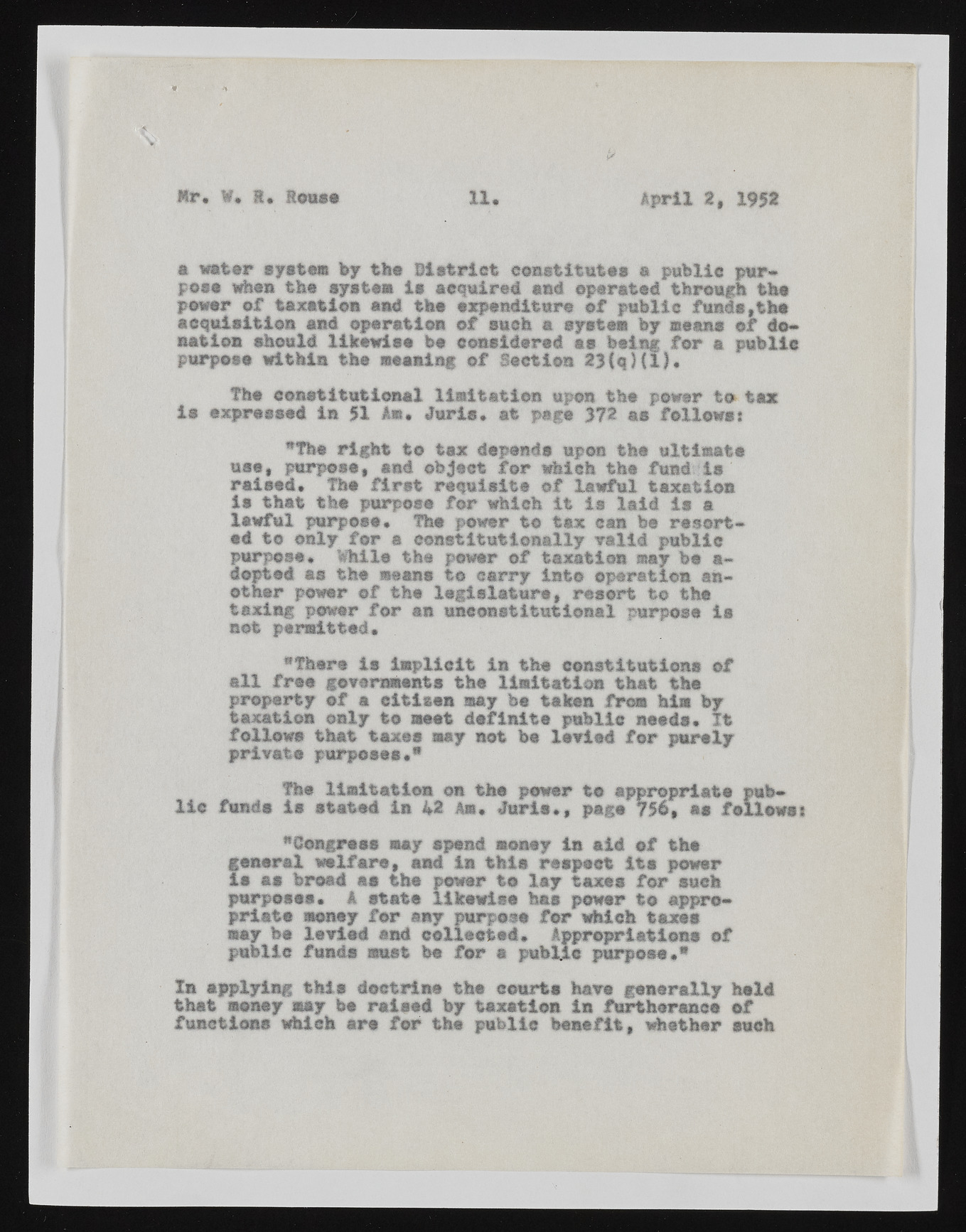Copyright & Fair-use Agreement
UNLV Special Collections provides copies of materials to facilitate private study, scholarship, or research. Material not in the public domain may be used according to fair use of copyrighted materials as defined by copyright law. Please cite us.
Please note that UNLV may not own the copyright to these materials and cannot provide permission to publish or distribute materials when UNLV is not the copyright holder. The user is solely responsible for determining the copyright status of materials and obtaining permission to use material from the copyright holder and for determining whether any permissions relating to any other rights are necessary for the intended use, and for obtaining all required permissions beyond that allowed by fair use.
Read more about our reproduction and use policy.
I agree.Information
Digital ID
Permalink
Details
More Info
Rights
Digital Provenance
Publisher
Transcription
f Mr. W. 8. Rous* 11, April 2, 1952 a water system fey the District constitutes • pufelie purpose when the system is acquired and operated through the power of taxation and the expenditure of public funds,the acquisition and operation of such a system fey means of donation should likewise fee considered as feeing for a pufelie purpose within the meaning of Section 23(q)(l). the constitutional limitation upon the power to tax is expressed in 51 A*. Juris* at page iff as follows: •The right to tax depends upon the ultimate use, purpose, and object for which the fund is raised. The first requisite of lawful taxation la that the purpose for which it ia laid is a lawful purpose. The power to tax can be resorted to only for a constitutionally valid public purpose. While the power of taxation may fee a-depted as the means to carry into operation another power of the legislature, resort to the taxing power for an unconstitutional purpose is not permitted. ®There is implicit in the constitutions of all free governments the limitation that the property of a eitlsen may be taken from him by taxation only to meet definite public needs. It follows that taxes may not fee levied for purely private purposes•” The limitation on the power to appropriate public funds is stated in 42 Am. Juris., page 756, as followsi "Congress may spend money in aid of the general welfare, and in this respect Its power is as broad as the power to lay taxes for such purposes. A state likewise has power to appropriate money for any purpose for which taxes may fee levied and collected. Appropriations of public funds must fee for a public purpose.* In applying this doctrine the courts have generally held that money may fee raised fey taxation in furtherance of functions which are for the public benefit, whether such

